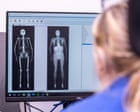
The landscape of healthcare and biotechnology is witnessing a wave of promising developments that can potentially transform the way diseases are detected, treated, and managed. In strides towards enhanced understanding and treatment of human ailments, initiatives such as full-body imaging studies, new biotechnology centers, and healthcare service enhancements are paving the way for a healthier future.
A significant milestone in medical imaging has been achieved through the UK Biobank project. After a decade-long endeavor, scientists have successfully completed the world’s largest full-body imaging project, scanning 100,000 individuals from head to toe. This comprehensive effort is set to unravel unprecedented insights into human ageing and the early signs of disease. Researchers globally will soon have access to one billion de-identified images encompassing the hearts, brains, abdomens, blood vessels, bones, and joints of volunteers, along with their medical histories and detailed data on genetic makeup, health, and lifestyle choices. This trove of information aims to equip medical professionals and scientists with the tools needed to improve early detection and prevention strategies, thereby ushering in a new era of personalized medicine.
In parallel, advancements in biotechnology are gaining momentum with initiatives like the planned establishment of a biotechnology center in Óbidos, Portugal, by Valvian. The ambitious project will see this innovation hub taking form over five acquired lots in the technology park area of the city. The infusion of resources and expertise into Óbidos is anticipated to catalyze regional development, ushering in novel biotechnological solutions and creating opportunities for research and development in the field. By fostering an environment conducive to scientific exploration and collaboration, Valvian’s investment holds the potential to position Portugal as a significant player in global biotechnology advancements, further enriching Europe’s scientific landscape.
Meanwhile, healthcare services are also seeing initiatives to bolster pre-hospital emergency care. The Liga dos Bombeiros Portugueses (LBP) has expressed readiness to work closely with the National Institute of Medical Emergency (INEM) to fine-tune aspects of emergency medical services. A meeting has been proposed for the upcoming week to ensure both entities can collaborate effectively to enhance the efficiency and responsiveness of pre-hospital care across the nation, potentially saving countless lives in critical situations.
In another related healthcare update, Rui Tato Marinho, the clinical director at Hospital de Santa Maria, has clarified his continued involvement amid reports regarding additional dermatological surgeries under discussion. His affirmation of maintaining his role reassures continuity and consistency in the hospital’s operations, ensuring that patient care remains uninterrupted and of high quality.
As the threads of research, technological innovation, and healthcare services intertwine, the path towards a future where diseases can be managed more effectively draws nearer. These initiatives reflect a collaborative and determined effort to harness modern science and technology for the betterment of public health, offering hope and assurance for a healthier tomorrow.
Source: {link}
